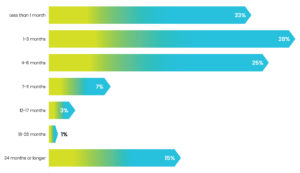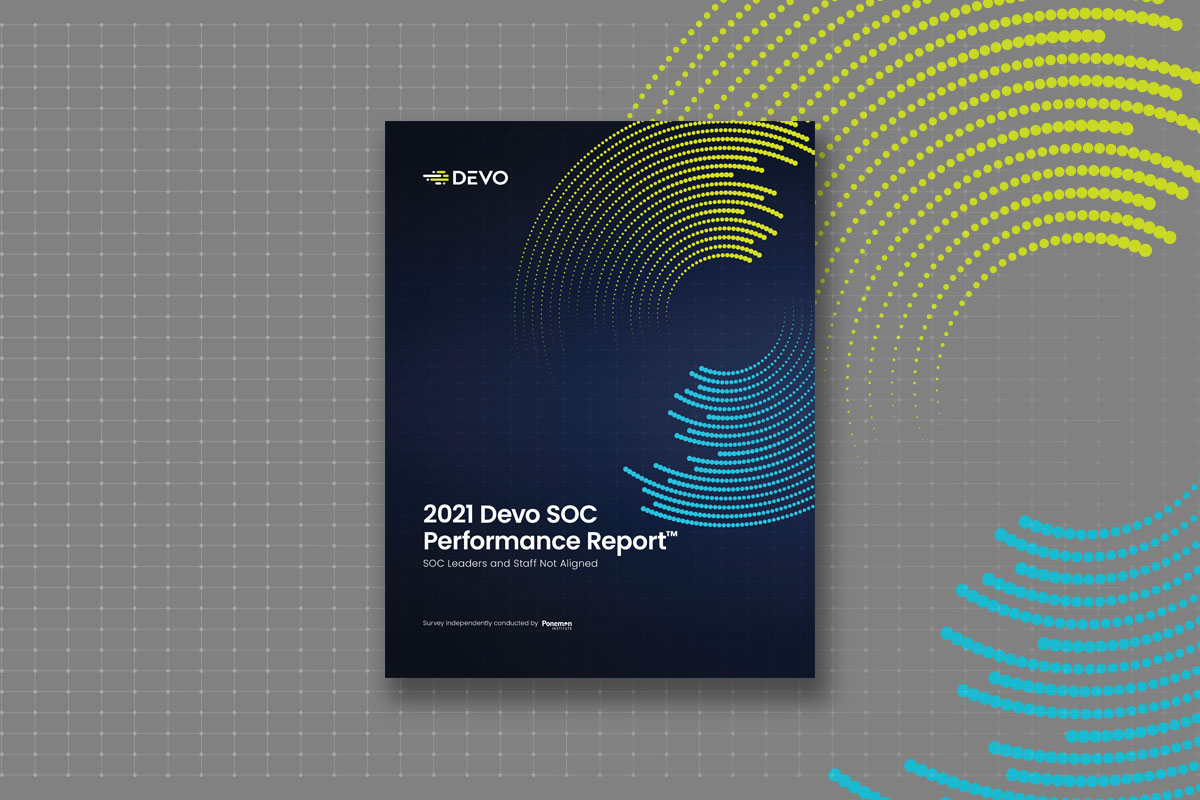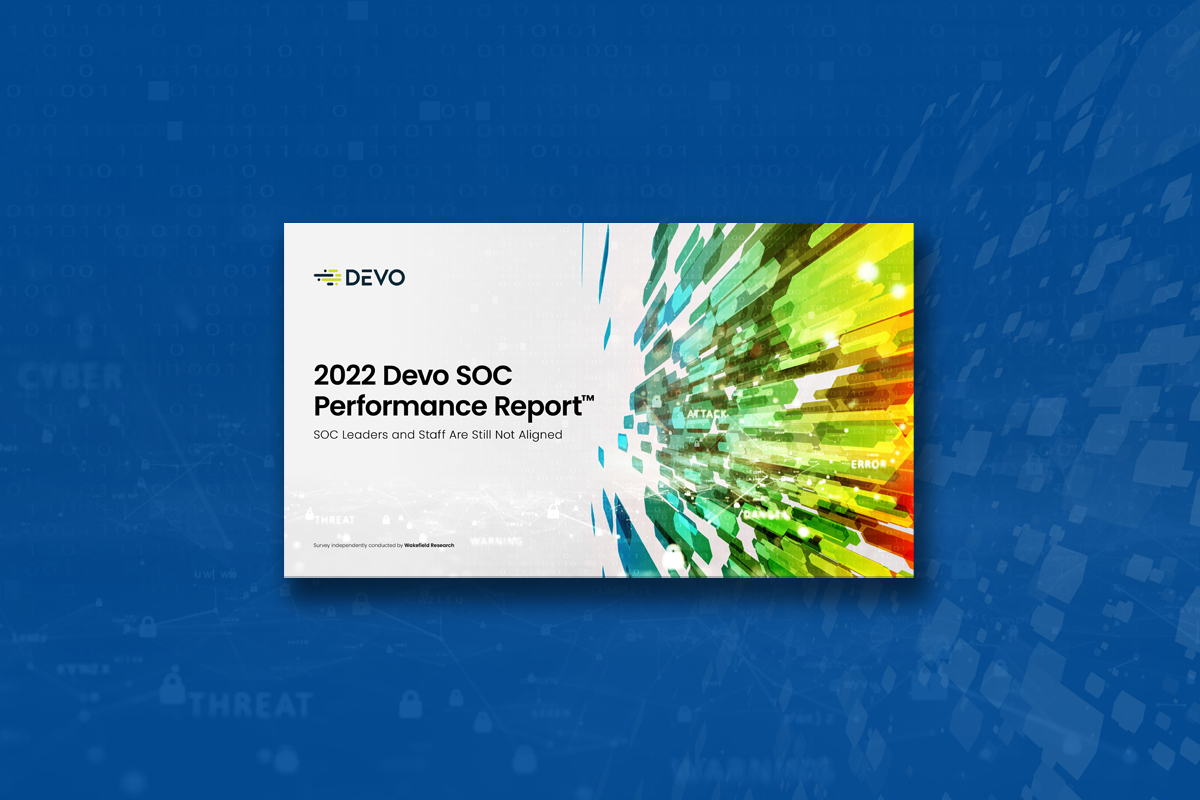
The disparities in some key areas in our 2022 Devo SOC Performance ReportTM provide clear evidence that the issues facing organizations since the start of the global pandemic in early 2020 continue to affect SOC performance, especially in the areas of hiring and retaining SOC talent.
Times have changed, and the competition for SOC talent is tougher than ever. Employers across industries are competing with a full array of work experiences available to today’s employees—traditional and nontraditional jobs and, in some instances, not working at all. The pandemic re-focused peoples’ priorities, so many have become unwilling to suffer through a job that doesn’t treat them well or compensate them fairly. Given these significant changes it should come as no surprise that it can take time to fill vacant positions with well-qualified hires. But just how much time?

Less than one-quarter of respondents say they can typically fill a SOC vacancy in less than a month. Things generally go downhill from there. The average time respondents said it takes to fill a position is seven months, with 15% percent of SOC leaders saying it takes two years or longer to fill a SOC role! If it takes months to fill a SOC staff position, guess what effect that has on the people who already work there? More work than they can usually handle.
To stay competitive in the hiring and retention game, companies need to offer adequate compensation and benefits packages — that’s a no brainer. Security professionals and analysts are demanding and receiving higher wages today, but that’s not enough. Many want more flexibility, community, and an inclusive culture before they take on a full-time job.
What steps can you take in this new competition for talent?
Get Creative: Companies need to redefine their attraction and retention strategies and build a value proposition that takes employees’ whole lives into account. Maybe more flex time? Mental health services? On-site childcare? It’s important to assess standard compensation against the types of other factors that employees say they want and find the right balance.
Education Counts: Nearly 30% of respondents in our survey say their organization provides reimbursement for higher education. This is a valuable benefit for employees while also helping to create a pipeline of well-educated individuals who are already familiar with the organization who will be better prepared to step into a SOC leadership role or a management position in another department.
Invest in Technology: Overall, 55% of respondents say they have considered walking away from their jobs due to the pressure they feel. Introducing advanced analytics and machine learning, and automating workflows, are two of the modern approaches to SOC work that are gaining traction. Advanced technologies are rapidly becoming available that will be able to take on some of the more tedious, exhausting areas of SOC work.
Culture of Growth: Creating a culture where you’re investing time, funds and energy into bettering the skills and career trajectory of analysts provides a more enticing environment for hiring candidates and rewards current staff their work and value. Keeping analysts engaged with practices such as job rotation, for example, encourages them to learn more about the organization’s business, which will help them understand exactly what they’re working hard to protect.
The new competition for hiring and keeping SOC talent is about employers acknowledging the many choices that today’s workers have and finding effective ways to compete against all those options. By being more open-minded and creative, companies can start to build a true capability in attraction and retention and meet the ever-changing needs of this and next-generation SOC workforces.



